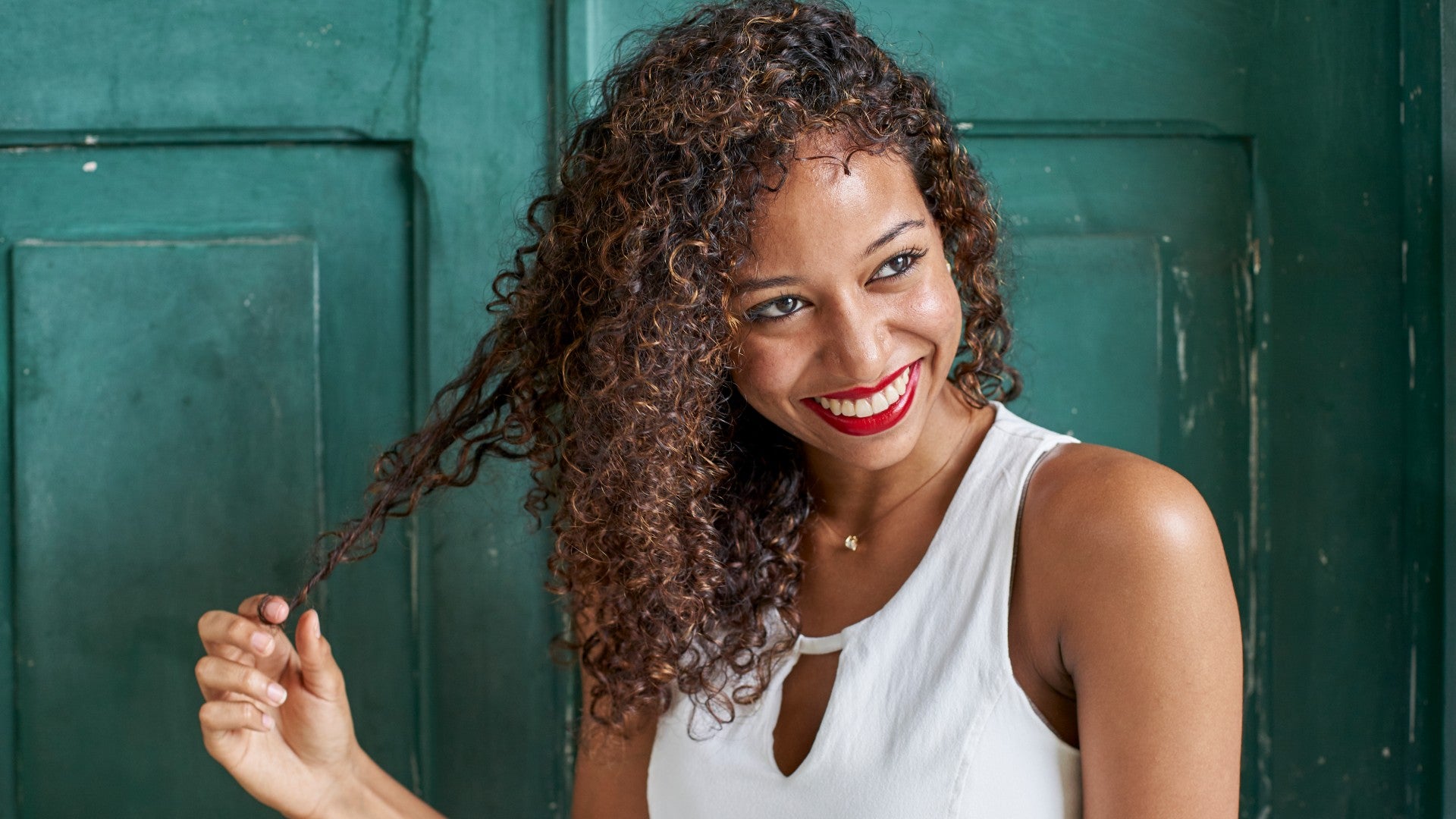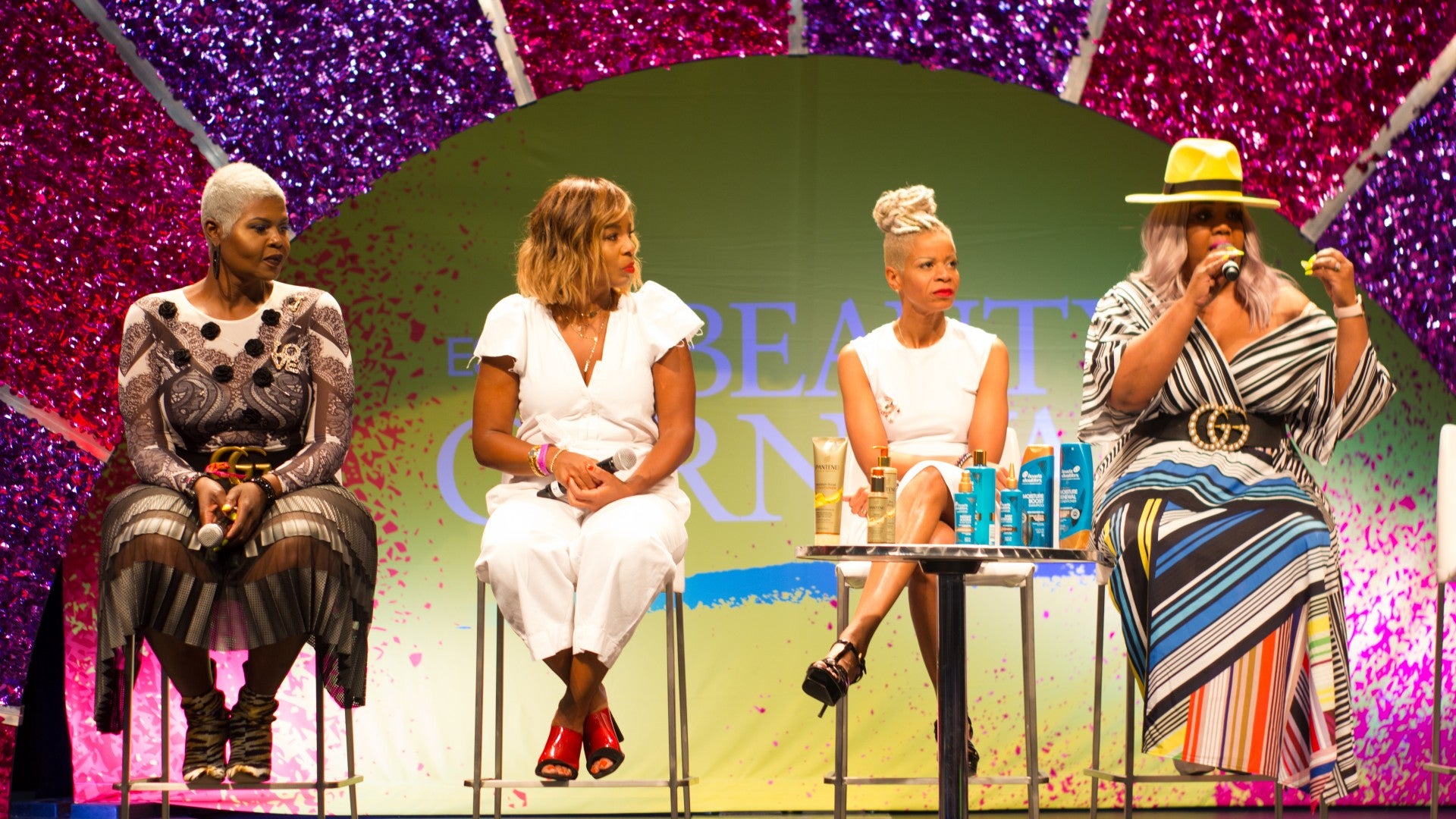
When a panel is titled “Why are Black Women Losing Their Hair,” there’s no way I’m missing it. I’ve been pretty vocal about my struggle with my edges, and how difficult it has been for me to get them back.
So when I saw that a panel of celebrity stylists and hair experts would be digging into this issue at Essence Festival’s Beauty Carnival on Saturday, I made plans to be front and center. Moderated by celebrity stylist and salon owner Vernon Martin, the panel was even more informative then I was expecting, and I left with some takeaways from each panelists to get me started on a new journey to healthier hair.
Celebrity hairstylist Kiyah Wright advised that we prioritize scalp care. As a wig wearer she knows. Wright is also guilty of just putting wigs on and getting out of the door without tending to her scalp. She knows how damaging bad under hair habits can be to your actual hair. So when you’re wearing a wig, or a weave, or a protective style, it’s important that you use products that target caring for your scalp and hair underneath.
“All of us are out here wearing these wigs and protect styles, but nobody is focusing on the scalp. And the scalp is really dealing with some serious challenges—dryness, broken off hair, balding egdes, and we really need to address this,” she said.
Protective styles and wig wearing can be damaging without proper application, but there can be many reasons why you’re losing that hair. When your hairline is pushed back three inches from the forehead, it’s problematic. There are three types of alopecia that trichologist and expert colorist Evie Johnson typically sees with Black women that result in hair loss.
Diffuse alopecia typically comes from comes from stress and other medical conditions such as hypothyroidism, Johnson said. Overdoing it on vitamin B can also cause this type of hair shedding. The upside is that it can correct itself or you can go see a doctor for treatment, she advised.

Scarring alopecia, which is mostly irreversible as the hair follicles are permanently destroyed and replaced with scar tissue, is the type that will come from the misuse of wigs, extensions, and their beauty companions. It’s important to tell your hairstylist not to braid or sew too tightly, and if you have locs it’s OK to have new growth and not twist them every few weeks.
“There’s nothing wrong with wearing these styles, it’s how its put on. You should not be feeling the pain of getting a style done,” Johnson said. “The hair likes to live in a natural state. The less you stress it, the healthier it will be.”
Genetic alopecia comes from mom and dad. If you’re noticing that the center of your hair is starting to get lower over time, or your edges are thinning out as the years pass, you might have your dear old parents to thank for that.
Jasmine Collins, also known as Razor Chic of Atlanta, makes clients cry. It’s not because she’s mean, it’s because she’s a miracle worker and hair educator. For her, Black women are losing their hair because they lack education about it.
“If you are wearing protective styles more than you are wearing your real hair that is a problem.”
Jasmine Collins
When she first began her career in hair, she was taking on 15 to 20 clients daily. Eventually, she realized that she could be more effective with her clients if she cut that roster in half, and spent more time with each client and focused on the details of their hair and hair journey. She advised that all women have a primary stylist. The same way you have a primary doctor to treat you when you get sick, you need to have a primary stylist when you are experiencing hair loss or issues with your hair.
“If you are wearing protective styles more than you are wearing your real hair that is a problem,” she said.
With DIY hair styling and hair care being so popular right now, women are not addressing hair issues when they experience them because they don’t have the expertise, she said. Instead, they cover up the issues with wigs and weaves.
“We can’t get to the root or hair loss in 20 minutes. There are so many layers to it, but education is key,” she continued. “If a stylist isn’t educating [clients] or doesn’t know hair care, or women don’t even have a stylist, that’s a problem.”
According to Dr. Kym Lee, a celebrity makeup artist, hair loss in many women is the result of deeper issues that aren’t being addressed. That’s where Lee comes in. She noticed that when people were going through heartbreaks, tragedies, and other frustrations, they would cover it up instead of clearing it up, and it was the same with their hair.
It’s what prompted Dr. Lee to get a doctorate in divinity. She wanted to counsel women so that they could focus on feeding their insides and allow that to reflect outward. According to Dr. Lee, if you cover up pain with a façade, the pain still exists. It’s the same with life and with hair, and one fuels the other.
“If you feed your brain, ‘I am ugly,’ it will believe that. If you feed your brain, ‘I am beautiful,’ it will believe it. If you feed your brain, ‘I am good enough,’ it will believe it,” she said.
If we feed our brains that our hair will grow into a healthy lustrous mane (and contact the right professionals) it’ll believe it. At least we surely hope so.